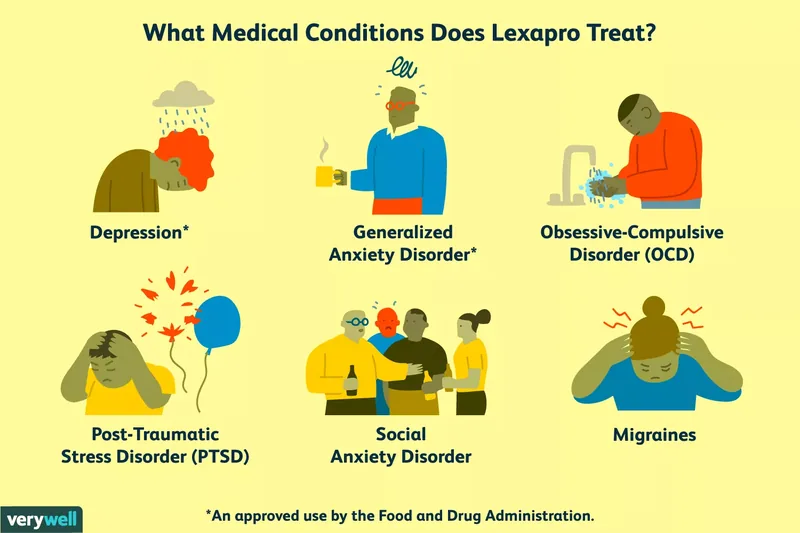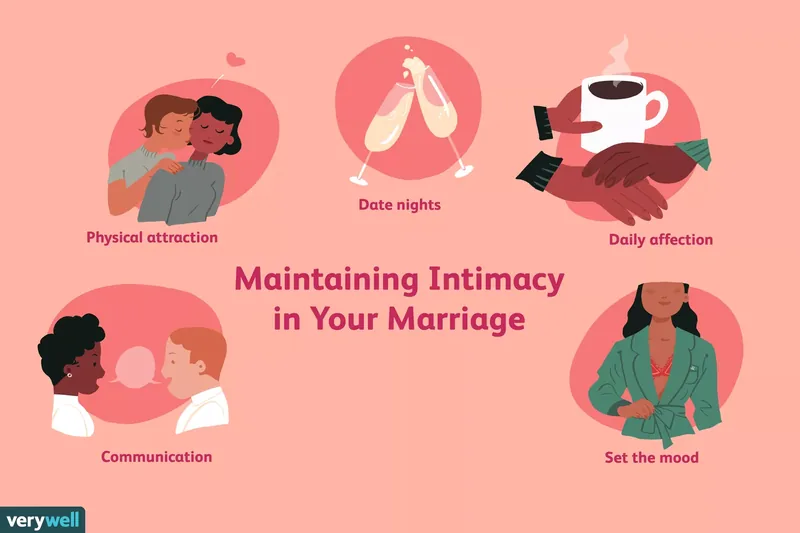Cultivating Strong Bonds: Your Guide to Maintaining Interpersonal Relationships
Maintaining strong interpersonal relationships is crucial for overall well-being, providing a vital support system that enhances social, emotional, and even physical health. These connections, ranging from partners and family to friends and colleagues, offer strength and resilience in navigating life's challenges. To effectively maintain interpersonal relationships, focus on foundational principles like mutual openness, clear boundaries, active listening, genuine respect, and profound empathy. By consistently applying these strategies, you can foster deeper, more meaningful connections that enrich your life in countless ways.
An interpersonal relationship signifies a social bond or connection between two or more individuals. These can be intimate, such as with a partner or close family, or broader, encompassing friendships, acquaintances, and professional networks. Understanding how to nurture and maintain these diverse relationships is key to building a robust support network that contributes significantly to your happiness and health. This guide will walk you through essential techniques to strengthen your bonds, highlight their importance, and offer advice for when relationships evolve or conclude.
Prerequisites for Strong Relationships
Before diving into specific techniques, acknowledge that maintaining interpersonal relationships requires a foundational willingness to engage, communicate, and invest emotionally. It involves self-awareness, an understanding that relationships are a two-way street, and a commitment to personal growth. While these qualities develop over time, a readiness to apply them is the first step towards building and preserving meaningful connections.
Key Takeaways
- Openness and Trust: Strong interpersonal relationships thrive on mutual self-disclosure, where both parties feel safe sharing their thoughts, feelings, and experiences, fostering intimacy and trust.
- Active Listening: Demonstrating active listening validates the other person's feelings and shows genuine care, deepening understanding and strengthening the relational bond.
- Empathy: Cultivating empathy allows you to understand and share the feelings of others, creating a powerful sense of connection and belonging that is vital for long-term relational health.
1. Cultivating Openness and Trust for Deeper Bonds
To effectively maintain interpersonal relationships, a foundational element is mutual openness, which paves the way for trust and intimacy. This means not only being receptive when others share their experiences but also taking the initiative to disclose your own thoughts, emotions, and personal details. This reciprocal sharing process, often termed self-disclosure, is a powerful mechanism for building and deepening bonds between individuals (Sprecher et al., 2013). It allows people to truly get to know one another beyond superficial interactions, moving towards a more profound understanding.
Consider the dynamic in a friendship where one person consistently shares their life updates, challenges, and joys, while the other remains guarded and rarely reciprocates. Such an imbalance can lead to feelings of distrust or a perception that the relationship is one-sided. The individual who is more open might begin to feel undervalued or that their trust is not being met with equal measure. In contrast, when both individuals engage in thoughtful self-disclosure, they create a safe space where vulnerability is embraced, reinforcing the idea that they value and care for each other. For instance, sharing a recent personal struggle, like a career setback or a family challenge, and allowing a friend to offer support, strengthens the emotional fabric of that connection.
Opening up isn't always easy; it requires courage and a willingness to be vulnerable. However, this act signals to others that you trust them and are invested in the relationship. It offers them the opportunity to reciprocate that trust and care, creating a virtuous cycle of emotional investment. To cultivate this, actively look for opportunities to share aspects of your authentic self. This could involve discussing your opinions on a recent event, expressing how a particular situation made you feel, or even sharing a personal goal you're working towards. By doing so, you invite others to see the "real you," which is indispensable for building enduring and meaningful relationships. This mutual exchange is essential to maintain interpersonal relationships in a way that fosters genuine connection and understanding in 2025.
2. Establishing and Upholding Healthy Boundaries
While openness is vital, it must be balanced with the establishment and enforcement of healthy boundaries to maintain interpersonal relationships effectively. Boundaries are crucial for safeguarding your personal space, energy, and values, preventing burnout, and ensuring that relationships remain respectful and mutually beneficial. They define what you are willing to accept and what you are not, serving as a blueprint for respectful interaction within any connection. These boundaries reflect your core values, personal expectations, and inherent limitations (Love Is Respect, 2024). Without them, relationships can quickly become draining or lead to resentment.
Boundaries can manifest in various forms, including physical, emotional, time, and even digital boundaries. For example, a time boundary might involve clearly communicating your availability, such as "I'm happy to chat, but after 9 PM is my quiet time." An emotional boundary could mean deciding how much personal information you're comfortable sharing with a new acquaintance versus a close friend, or declining to take on another person's emotional burden when you are already overwhelmed. In the digital age of 2025, digital boundaries are increasingly important, such as setting expectations for response times to messages or deciding not to engage in work-related discussions outside of business hours. These clear lines help prevent misunderstandings and protect your well-being.
It is equally important to respect the boundaries that others establish. Just as you expect your limitations to be honored, you must also acknowledge and uphold those of your friends, family, and colleagues. Disregarding someone's stated boundaries—for instance, consistently calling a friend during their designated "family time" or pushing a colleague to share personal details they've indicated are private—can erode trust and damage the relationship. Respecting boundaries demonstrates that you value the other person's autonomy, needs, and emotional space, reinforcing the foundation of mutual respect. This reciprocal consideration is not just about protecting individual well-being; it's a fundamental pillar for any relationship seeking to thrive and endure, helping to maintain interpersonal relationships with integrity.
3. Mastering Active Listening for Genuine Connection
Effective communication is the cornerstone of any strong relationship, and at its heart lies the art of active listening. To truly maintain interpersonal relationships, it's not enough to simply hear words; you must engage with them, process their meaning, and respond thoughtfully. Active listening involves fully concentrating on what the other person is saying, both verbally and non-verbally, rather than passively waiting for your turn to speak. This deep engagement shows that you are present, invested, and genuinely interested in their perspective, which is a powerful way to build trust and intimacy.
When you practice active listening, you're doing more than just being quiet. You're reflecting on their message, asking clarifying questions to ensure you understand, and sometimes paraphrasing what they've said to confirm your comprehension. For instance, if a friend expresses frustration about a work project, an active listener might say, "So, it sounds like you're feeling overwhelmed by the tight deadline and lack of support, is that right?" This not only validates their feelings but also gives them an opportunity to correct or elaborate. Avoiding interruptions and maintaining appropriate eye contact are also crucial non-verbal cues that signal your attentiveness. In 2025, with increasing distractions from digital devices, giving someone your undivided attention is a profound act of care.
The benefits of active listening extend far beyond simple understanding. It allows you to learn more about the other person's experiences, values, and emotional landscape, which is invaluable for strengthening your bond. It also provides an opportunity to offer genuine emotional support and validation, making the other person feel heard and understood—a fundamental human need. Imagine a scenario where a family member is grappling with a difficult decision; an active listener can provide a sounding board, helping them process their thoughts without judgment, rather than immediately jumping in with unsolicited advice. This fosters a sense of being valued and respected, significantly contributing to the ability to maintain interpersonal relationships that are resilient and deeply connected.
4. Demonstrating Respect and Valuing Others
Respect forms an indispensable pillar for any lasting connection, making it paramount to maintain interpersonal relationships effectively. Showing respect for others means acknowledging and valuing their feelings, opinions, time, and personal interests, even when they differ from your own. It doesn't necessitate agreement on every point or blindly following their desires, but rather demonstrating that you hold their individuality and autonomy in high regard. This foundational respect creates an environment where individuals feel safe, appreciated, and genuinely seen for who they are.
Genuine respect is evident in various actions and attitudes. For example, avoiding disparaging remarks about someone's hobbies or passions, even if they don't align with your own, is a clear sign of respect. If a friend is enthusiastic about a genre of music you dislike, you might say, "That's interesting, I can see why you enjoy the energy in that song," rather than dismissing it outright. Furthermore, consistently keeping commitments you've made, such as showing up on time for a planned outing or following through on a promise, demonstrates that you value their time and trust. In a professional setting, respecting a colleague's workload by not adding unnecessary tasks or giving credit where it's due also reinforces this principle.
Being mindful of their feelings and listening attentively, even during disagreements, are also critical aspects of respect. It means allowing them to express their perspective fully, without immediate judgment or interruption, and acknowledging their emotional state. For instance, if a loved one expresses hurt over a past action, respecting their feelings means validating their pain, perhaps by saying, "I understand why that would have been upsetting for you," rather than immediately defending your intentions. This approach fosters a sense of psychological safety, encouraging open dialogue and conflict resolution. By consistently exhibiting these behaviors, you reinforce the value you place on the other person and the relationship itself, thereby strengthening your ability to maintain interpersonal relationships through mutual regard and admiration in 2025.
5. Practicing Empathy and Understanding
Empathy is a cornerstone for building and sustaining deep, meaningful connections, making it a powerful tool to maintain interpersonal relationships. It involves the profound ability to understand and share the feelings of another person, essentially "walking in their shoes" to see the world from their perspective. This deep understanding goes beyond mere sympathy, which is feeling sorry for someone; empathy means truly grasping their emotional state as if it were your own, fostering a powerful sense of connection and solidarity (Batson, 2011). When you are empathetic, you not only perceive their pain or joy but also acknowledge its validity from their viewpoint.
The benefits of empathy in interpersonal relationships are multifaceted. When you demonstrate empathy, it helps the other person feel truly understood and less alone, fostering a vital sense of belonging. This understanding serves as a robust foundation for trust and closeness, as individuals are more likely to confide in those who they believe genuinely comprehend their experiences. For example, if a friend is grieving a loss, an empathetic response might involve acknowledging their specific sorrow, perhaps by saying, "I can only imagine how difficult it must be to face each day without them," rather than offering generic platitudes. This targeted validation makes a significant difference.
Beyond strengthening individual bonds, research suggests that empathy also promotes broader prosocial behaviors such as kindness, cooperation, and altruism, contributing to improved mental health for both the giver and receiver. In 2025, with increasing awareness of mental well-being, the role of empathy in supporting others through stress and challenges is more recognized than ever. Cultivating empathy involves actively listening, observing non-verbal cues, and making a conscious effort to imagine yourself in the other person's situation. For instance, if a colleague is struggling with a new policy, an empathetic approach would be to consider their workload and previous experiences before offering solutions, rather than immediately criticizing their approach. This practice of putting oneself in another's position is indispensable for fostering resilient and compassionate connections, and helps to maintain interpersonal relationships that are truly supportive.
6. The Profound Impact of Healthy Relationships
Understanding why interpersonal relationships matter is fundamental to appreciating the effort required to maintain them. These connections are not merely pleasant additions to life; they are essential for holistic well-being, profoundly impacting our physical, psychological, and emotional health. Research consistently highlights that robust social connections offer a myriad of benefits, solidifying their role as a critical component of a flourishing life. From combating loneliness to increasing resilience, the positive ripple effects of healthy relationships are undeniable (American Psychological Association, 2019).
One of the most significant advantages of strong interpersonal relationships is their ability to combat loneliness, a growing concern in modern society. Feeling connected to others provides a sense of belonging and community, which acts as a buffer against feelings of isolation. Furthermore, a supportive network significantly increases an individual's resilience to stress, enabling them to navigate life's challenges with greater ease. Knowing you have people to lean on during difficult times can reduce the emotional burden and provide practical support. Studies have also linked strong social ties to a decreased risk of depression and suicide, underscoring their vital role in mental health (Grav et al., 2012).
Beyond psychological benefits, the impact extends to physical health. Individuals with strong social connections often exhibit a lower risk of cardiovascular disease and tend to enjoy improved longevity (Grav et al., 2012). The positive influence is partly due to the motivation these relationships provide. When you have people who care about you, you may feel more inclined to engage in health-promoting behaviors. For example, friends might encourage each other to exercise regularly, eat a healthy diet, or avoid detrimental habits like smoking (Crookes et al., 2016). In 2025, with increasing recognition of the mind-body connection, the role of social support in preventative health and chronic disease management is more emphasized than ever. Thus, investing time and effort to maintain interpersonal relationships is a direct investment in your long-term health and happiness.
7. Navigating the Evolution and End of Relationships
While the goal is often to maintain interpersonal relationships indefinitely, it's a reality that not all connections are meant to last forever, and some may even need to end for your well-being. Relationships evolve, and sometimes, for various reasons, they conclude. It's crucial to recognize when a relationship has become unhealthy, toxic, or simply no longer serves a positive purpose in your life. Understanding how to navigate these transitions, whether they are natural endings or necessary separations, is as important as knowing how to build them.
Relationships can end for a multitude of reasons. Some are limited by their very nature; for instance, a connection with a teacher, a healthcare professional, or a colleague might naturally conclude when circumstances change, like a job transition or the completion of a course. Other relationships, particularly intimate ones, can end due to breakups, divorce, or geographical moves. Tragically, some relationships conclude with the death of a loved one. Each type of ending brings its own set of emotions, and it is entirely normal to experience a wide range of feelings, including sadness, anger, confusion, or profound grief. Acknowledging these emotions without judgment is the first step toward healing and moving forward.
When confronted with the loss or transformation of an interpersonal relationship, prioritizing self-care and seeking support are paramount. Allowing yourself to grieve, process your feelings, and lean on your remaining support network can significantly aid in recovery. If you find yourself struggling to cope with the emotional aftermath of a relationship ending, particularly if it was a toxic or deeply painful experience, reaching out to a healthcare provider or a therapist is a brave and beneficial step. Professionals can offer strategies for managing grief, rebuilding self-esteem, and establishing healthier relationship patterns in the future. In 2025, mental health resources are more accessible, making it easier to find the support needed to navigate these challenging life transitions and ultimately prepare you to maintain interpersonal relationships that are truly healthy and fulfilling.
Keep in Mind
Cultivating and protecting strong interpersonal relationships is a vital investment in your overall well-being. Reflect on the qualities you cherish most in your connections—such as trust, respect, kindness, honesty, and genuine friendship—and consciously strive to embody these virtues in your interactions with others. It's easy to become consumed by the demands of daily life, but making a deliberate habit of nurturing your relationships is paramount.
Dedicate consistent time, attention, and effort to the people who matter most. This ensures you are providing them with the support they need while also securing the reciprocal support crucial for your own resilience and happiness. A little consistent care goes a long way in ensuring that your relationships remain vibrant, supportive, and enduring for years to come.











